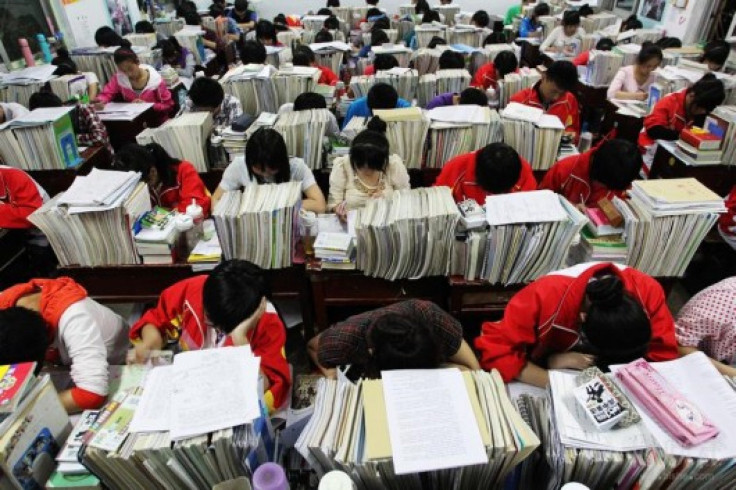Future Of Chinese College Graduates Is Bleak: More Than Half Will Have To Take Blue-Collar Jobs By 2020
What good is a highly educated workforce if there's not much good work to go around? A new study shows that of the 94 million Chinese who have graduated or will graduate from college from 2010 to 2020, more than half will have to take blue-collar jobs because of an oversupply of talent.
Last week 9.2 million Chinese high school students sat for the annual “gaokao,” the college entrance test that is traditionally regarded as life-changing and determines which college students will attend. However, doing well on the test is no longer the guarantee of a prosperous future that it once was.
This year has been dubbed “the worst year to graduate college in history.” By mid-April, only 28 percent of Beijing’s 2013 graduates had found jobs, and it seems that situation may only get worse in the coming years.

The study, entitled “An Analysis of the Education Organization and Talent Supply and Demand Based on Job Statistics and Population Survey,” was spearheaded by Hu Ruiwen, a former dean of the Shanghai Academy of Education and an education expert. It took two years to complete, and the report was finished in May, according to Caixin, a leading Chinese financial news portal.
According to the report, an average of 9.4 million students will graduate from college each year from 2010 to 2020. As a result, the total number of graduates for the current decade will reach 94 million, nearly double the number of Chinese college graduates in the previous decade.
A rise in a nation’s average level of education would usually be a cause to rejoice, but in China’s case, its employment level has not kept up with its college graduates, Caixin reported.
By 2020, an estimated 30 million new jobs suited for college graduates will open up, along with 16 million management positions. Adding the two statistics together, 46 million of the college graduates will be able to take jobs befitting their education level, but the rest will have to take blue-collar positions if they want a job at all.
The study reported that by 2020, the services industry will have added 24 million new jobs compared to 2010, factories will have added 28 million, and the farming sector 2.6 million. These new job openings will hopefully cover the oversupply of college graduates, according to Caixin. But just any job might not be much of a payoff for studying for years for the grueling gaokao and then working hard to get through college.
© Copyright IBTimes 2024. All rights reserved.











